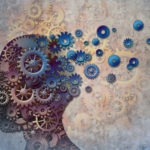By Bonnie Jenkins, Advanced Natural Wellness
Natural Sexual Enhancers. Something to think about since it’s February and love is in the air. Despite the aphrodisiac aura surrounding Valentine’s Day, you or your partner may find that you’re just not in the mood. Maybe you’re never in the mood. Or maybe you’re interested, but your body refuses to cooperate.
The success of drugs like Viagra and Cialis leave the impression that sexual problems are easy to fix. But that’s not always the case, especially for women. Libido isn’t just influenced by physical factors – psychological factors like stress, depression and anxiety come into play as well. Getting older also creates stumbling blocks to love, but your sex life doesn’t have to retire when you do. For many people, a few lifestyle changes and natural sexual enhancers can be the ticket to a livelier love life.
As Time Goes By
Sexual function and desire are controlled in part by hormones, notably testosterone and estrogen. Everyone produces both hormones, but men make more testosterone and women make more estrogen. As you age, a decline in estrogen and testosterone levels can put a damper on sexual drive and performance.
When a woman reaches menopause, she loses up to 90 percent of circulating estrogen. These low estrogen levels can result in decreased blood flow to genitals as well as diminished capacity for arousal. Though most often associated with men, testosterone is also responsible for helping to stimulate sexual arousal in women – and levels drop in women as they age.
What about men? Research shows that as many as 30 million American men experience erectile dysfunction (ED) at some time in their lives. About 25 percent of these men have ED because of side effects from medications like antidepressants, anti-hypertensives, anti-ulcer drugs or cholesterol-lowering medications. ED can also be caused by an underlying disease, including heart disease that impairs blood flow to the penis or diabetes that injures genital nerves. Researchers at the State University of New York in Buffalo found that one-third of men with diabetes had low testosterone levels. Plus, high blood sugar can damage nerve endings in the genital area that allow both men and women to experience sex to the fullest.
MD Exposes the Hidden Danger to Your Eyes

When your eyesight starts to fail, it's a real problem. Suddenly you can't go to the grocery store... you can't get to the doctor if you have an emergency... you can't meet your friends for dinner…
Your "regular" doctor doesn't have time to keep up with the latest research. And the same goes for eye doctors. They go to school to learn how to fit you for glasses and contacts, but have no way of preventing the damage and loss of eyesight that threatens your freedom and independence.
Let me show you something that explains a LOT about how your eyes work.
In my FREE Special Report, I'll show you a HUGE, untapped resource for your eyes that safely and naturally restores clear, effortless eyesight.
Click here to get started...
Herbal Helpers
Fortunately, there are some natural ways to increase arousal and get the blood pumping where it counts the most. Here are some of the best natural sexual enhancers around:
Yohimbe: Long regarded as an aphrodisiac, yohimbe, which is derived from a tree bark that grows throughout southern Africa, helps increase circulation by dilating blood vessels. In fact, an alkaloid extract from the bark, yohimbine hydrochloride, was the first FDA-approved drug to treat impotence. In one study in Germany, researchers treated 85 men with erectile dysfunction. Seventy-one percent of the men taking yohimbe reported improved sexual desire, sexual satisfaction, frequency of sexual contacts and quality of erection, compared with 45 percent in the placebo group. Like many alkaloids, yohimbine increases central nervous system activity, so it stimulates the entire body. This also results in yohimbe’s notorious side effects – nervousness, irritability, insomnia and increased blood pressure – so check with your doctor before using this herb. Typical dose: 15 to 30 mg.
Maca: This Peruvian herb is purported to boost endurance, stamina and sexual virility. It’s also used by both men and women to stimulate both libido and pelvic blood flow. And, unlike yohimbe, you don’t have to worry about high blood pressure, nervousness or insomnia. But does it work? A 12-week double-blind, plaebo-controlled study found that healthy men who took the herb did indeed have an increase in desire. Earlier animal studies have found that maca also increases stamina. Rats given the herb experienced significantly shorter foreplay time and shorter intervals before they started up again. Typical dose: 1,500 to 3,000 mg.
Epimedium: What’s in a name? This increasingly popular herb used by both men and women is also known as horny goat weed. Found in southern China, legend has it that mountain goats were observed having quite a time with one another after nibbling from a certain patch of weeds. Just legend? In one clinical trial, Chinese researchers used epimedium on 45 male patients and found 87 percent improvement in sexual function. Typical dose: 250 to 1,000 mg. of epimedium daily, divided into two or three doses throughout the day.
Muira puama: This herb has been used as an aphrodisiac in South America for centuries. One study conducted by the Institute of Sexology in Paris (no kidding!), assessed 202 healthy women complaining of low sex drive. Various aspects of their sex life, from frequency of sexual desires to orgasm intensity, were measured before and after one month of treatment with a proprietary blend of muira puama and ginkgo biloba. By the end of the trial, 65 percent of the women reported significantly higher sex drive than they had at the beginning of the study. Typical dose: 1,000 to 1,500 mg. per day.
Work It All Out
Are You Suffering From...
- Love handles and a pot belly
- Romance that isn't what it used to
- Forgetfulness and inattention
- Low (or no) strength and endurance
- A sex drive that's shifted into neutral...or worse
If so...you may have Mature Male Burnout. Click here to discover more about this unique condition and what you can do about it.
Along with these romance-supporting herbs, regular physical activity contributes to clear arteries, normal blood glucose and blood pressure levels, while it tones your body, boosts your mood and aids weight control. A recent Harvard study of nearly 23,000 men found that obese men who exercised little had two and a half times the risk of ED compared to men who weren’t overweight and who exercised vigorously 30 minutes a day.
In addition to keeping you healthy, activities that increase blood flow to the large muscle groups in the lower half of your body also improve blood flow to the genitals. Walking, jogging and biking all get the blood moving to improve your sex life. And that goes a long way toward improving opportunities for romance this Valentine’s Day.
One Last Thing …
If you want better sex, take care of your health. Healthy arteries promote maximum blood flow to the heart, brain and genitals, while well-controlled blood sugar levels prevent damage to genital nerves. Blood pressure also plays a role. Elevated blood pressure may cause ED in men, while women may experience diminished sexual pleasure. The latter is the conclusion of a recent study of 224 premenopausal women. Those with high blood pressure experienced more stumbling blocks to gratifying sex than women with normal blood pressure, whether or not they took medication for it.
Managing a chronic health problem that affects you or your significant other can sap energy and enthusiasm for anything, including sex. Moreover, several medications can tamper with sexual function and arousal. Health and sexual satisfaction are so intimately related that disinterest in sexual relations or impaired function might actually tip you off to a health condition. For example, being too tired for sex may signal thyroid disease or depression. ED may be a marker for diabetes. And a recent study from Turkey has even linked gum disease to low testosterone levels in men. So if you suspect an underlying health condition, don’t hesitate to see your health provider.
This Just In …
Researchers have known for almost two decades that dark chocolate is packed with beneficial antioxidants and that it can lower blood pressure. But a new study adds even more credence to chocolate’s heart healthy benefits.
Researchers at the Johns Hopkins University School of Medicine and the Bloomberg School of Public Health have found that eating two tablespoonfuls of dark chocolate a day has a similar biochemical effect as aspirin and can reduce the likelihood of developing a blood clot. The researchers made the discovery when 139 people were disqualified from a larger study looking at the effects of aspirin on blood platelets. These “offenders” were told to refrain from indulging in a number of foods known to affect platelet activity – including chocolate. But they just couldn’t break their habit.
Because of the chocoholics’ indulgence, the scientists accidentally found that a chemical in cocoa beans acts in much the same way as aspirin to reducing the clumping of platelets – which can be fatal if a clot forms and blocks a blood vessel, causing a heart attack. According to the study’s lead author, eating a little bit of chocolate or having a cup of hot cocoa as part of a regular diet is good for personal health – just as long as you don’t eat too much of it.
If you plan to get your sweetheart a box of chocolates for Valentine’s Day, remember to go for the dark varieties. Not only will you be telling her how much you love her, you’ll be giving her the sweetest gift of all – good health.
References:
Gardner A. “Dark Chocolate Helps Prevent Dangerous Blood Clots.” HealthDay. November 15, 2006.
Gonzales GF, Cordova A, Vega K, et al. “Effect of Lepidium meyenii (MACA) on sexual desire and its absent relationship with serum testosterone levels in adult healthy men.” Andrologia. 2002;34:367-372.
Vogt HJ, Brandl P, Kockott G, et al. “Double-blind, placebo-controlled safety and efficacy trial with yohimbine hydrochloride in the treatment of nonorganic erectile dysfunction.” International Journal of Impotence Research. 1997;9:155-161.
Waynberg J, Brewer S. “Effects of Herbal vX on libido and sexual activity in premenopausal and postmenopausal women.” Advanced Therapeutics. 2000;17:255-262






